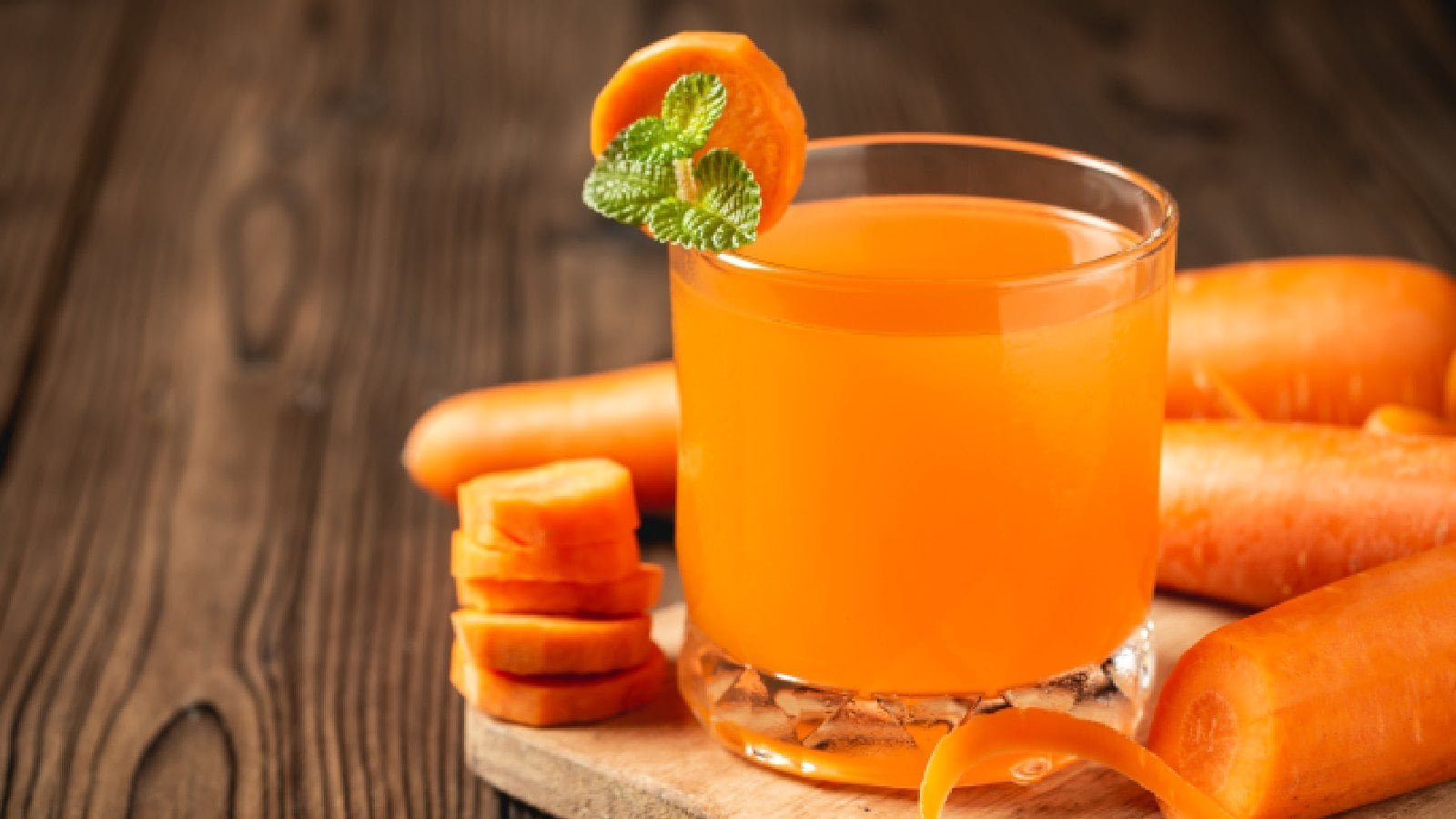Find the benefits of amla, carrot, and beetroot juice, and know how to incorporate these nutrient-rich powerhouses into your diet easily.
Juicing has become a popular way to consume nutrients in a quick and convenient format. Among the many combinations available, mixing amla (Indian gooseberry), beetroot, and carrot (ABC) juice stands out for its vibrant colour and impressive health benefits. If you’re considering making this nutrient powerhouse a part of your daily routine, especially on an empty stomach, here’s what you can expect.
What are the nutritional benefits of amla, beetroot, and carrot juice?
Each ingredient in this juice blend is a nutritional powerhouse on its own, and together, they offer a nutritional boost:
- Amla (Indian gooseberry): This fruit is incredibly rich in vitamin C, antioxidants, and dietary fibre, as per the journal Springer. Just one amla can provide over 100% of your daily vitamin C requirement.
- Beetroot: Known for its vibrant colour, beetroot is high in dietary nitrates, which support heart health. It’s also a good source of folate, manganese, and potassium.
- Carrots are well-known for their beta-carotene, which the body converts into vitamin A, according to the Harvard School of Public Health. They also provide fibre, vitamin K1, and potassium.
According to dietitian Ramya B, on average, a serving of this juice (about 240 ml) can deliver:
- Vitamin A: 15,000 to 20,000 International Units (over 300% of your daily needs)
- Vitamin C: 20 to 30 mg (around 25% to 40% of your daily needs)
- Folate: 50 to 80 mcg (about 12% to 20% of your daily needs)
- Potassium: 300 to 400 mg (around 8% to 10% of your daily needs)
What are the benefits of carrot, beetroot, and amla juice?
Drinking this juice daily can provide numerous health benefits. Here are some of the top reasons to incorporate it into your morning routine:
- Boosts immunity: The high vitamin C content in amla is a powerful immune booster, helping your body ward off infections.
- Supports digestive health: With the combined fibre from beets and carrots, this juice can promote digestive health, aid in regular bowel movements, and support gut health.
- Enhances heart health: Beetroot contains nitrates that may help relax blood vessels, lower blood pressure, and improve overall heart health, according to the American Heart Association.
- Promotes skin health: Vitamin C and antioxidants in amla and carrots contribute to healthy, glowing skin. They help combat skin damage and promote a youthful appearance.
- Supports weight management: The juice is low in calories and provides essential nutrients, making it an excellent choice for those seeking to manage their weight while ensuring they receive the necessary vitamins and minerals.
- Detoxifies the body: The naturally occurring compounds in beetroot and amla support liver function, aiding in detoxification processes.
- Improves energy and stamina: “Nitrates in beetroot can enhance athletic performance by increasing oxygen flow to the muscles, making this juice ideal for active individuals”, shares the dietitian.
- Combats inflammation: Both amla and beetroot possess potent anti-inflammatory properties, helping to reduce inflammation throughout the body.

How to make amla, beetroot, and carrot juice?
Making this juice is quick and clear! Here’s a detailed recipe:
Ingredients:
- 1-2 small beetroots
- 2-3 medium-sized carrots
- 1-2 amla (fresh or dried)
- A small piece of ginger (optional, for extra zest)
Instructions:
- Preparation: Peel the carrots and beetroots. If using fresh amla, remove the seeds.
- Juicing: Cut the vegetables and amla into smaller pieces for easy blending.
- Blend: Combine all ingredients in a blender until smooth. Add a little water if needed.
- Strain: Use a fine mesh strainer or cheesecloth to separate the juice from the pulp.
- Serve: Enjoy your fresh, colourful juice immediately for the best taste and nutrients!
Is it safe to drink ABC juice daily?
- Daily intake: “It’s advisable to drink one glass (about 240 ml) of this juice each day”, says the dietitian.
- Timing: Consume it on an empty stomach for maximum absorption of nutrients
- Moderation: While it’s beneficial, moderation is key to avoid any potential digestive issues or spikes in blood sugar levels.
Who should avoid amla, beetroot, and carrot juice?
- Kidney issues: Individuals with kidney problems or a history of kidney stones should limit their intake of oxalate-rich foods, such as beetroot, as recommended by the National Kidney Foundation.
- Allergies: Those prone to allergies should monitor any reactions, particularly to amla.
Disclaimer: At Health Shots, we are committed to providing accurate, reliable, and authentic information to support your health and well-being. However, the content on this website is intended solely for informational purposes and should not be considered a substitute for professional medical advice, diagnosis, or treatment. Always consult a qualified healthcare provider for personalised advice regarding your specific medical condition or concerns.






